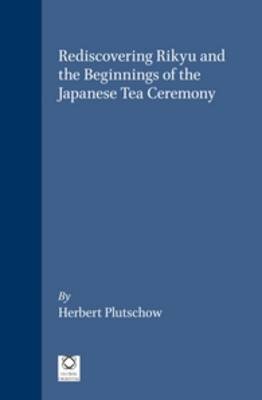Rediscovering
1 primary work
Book 5
Rediscovering Rikyu and the Beginnings of the Japanese Tea Ceremony
by Herbert Plutschow
Published 15 May 2003
For the first time, Rikyu's tea is considered as a profoundly important political as well as a socio-religious ritual in response to the dramatic changes taking place in the country at large: the hundred-year civil war (Sengoku) period was finally coming to an end and the process of political unification under the strong military leadership of Oda Nobunaga and Toyotomi Hideyoshi had begun. An important focus in the book is the author's research into why Rikyu's tragic suicide, enforced by Hideyoshi, was a necessary outcome of the emerging conflict between ritual, art and politics. In addition, the study highlights the tensions and struggles between individual artists who were led by a sense of artistic identity and inspiration, together with the political leaders who imposed their artistic taste on the nation. Plutschow also provides new insights into the sixteenth-century Japanese perception of beauty - commonly called wabi - a simple, often austere beauty displayed in tea in order to unite host and guests as equals. This book will be of considerable interest in research connected with politics, Zen Buddhism and art history as well as the central issues regarding the history and development of tea in Japan.
